Middle East
Trump says bombing of Yemen to stop as Oman confirms US-Houthi ceasefire | Israel-Palestine conflict News
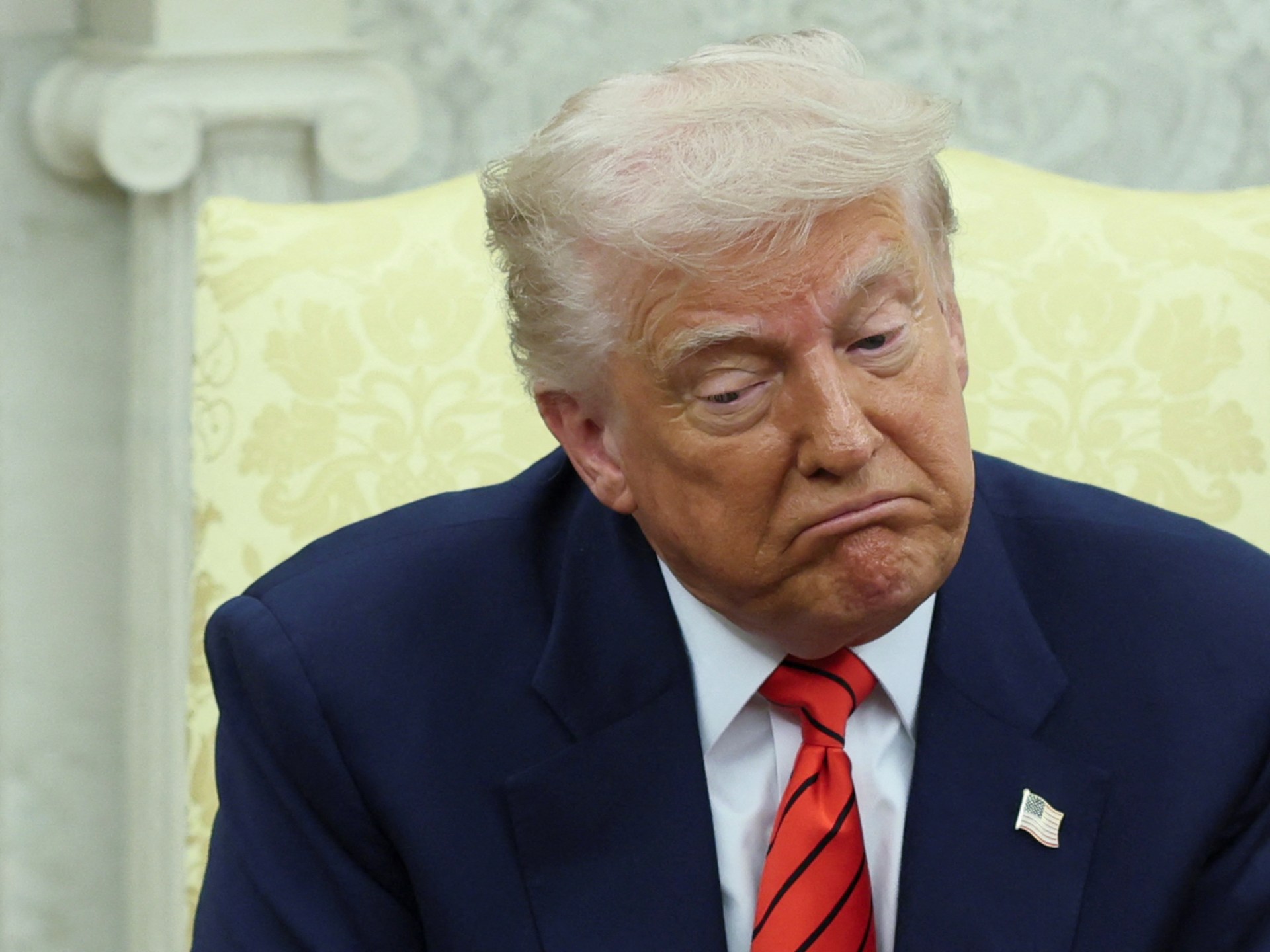
Oman says it brokers truce between Washington and Houthis, says neither side will target the other.
President Donald Trump has announced the United States is abandoning its daily bombing campaign of Yemen based on an understanding with the Houthis as Oman confirms that it has brokered a ceasefire between Washington and the armed group.
“The Houthis have announced to us that they don’t want to fight any more. They just don’t want to fight, and we will honour that, and we will stop the bombings,” Trump told reporters in the White House on Tuesday during a meeting with Canadian Prime Minister Mark Carney.
Trump claimed that the Iran-aligned Yemeni group “capitulated” and has promised not to carry out attacks on shipping. It launched those attacks in October 2023 shortly after the war in Gaza started, saying the attacks were in support of Palestinians.
“I will accept their word, and we will be stopping the bombing of Houthis, effective immediately,” the US president said.
Omani Foreign Minister Badr Albusaidi said the two sides have agreed to a ceasefire.
“Following recent discussions and contacts conducted by the Sultanate of Oman with the United States and the relevant authorities in Sana’a, in the Republic of Yemen, with the aim of de-escalation, efforts have resulted in a ceasefire agreement between the two sides,” he wrote in a post on X.
“In the future, neither side will target the other, including American vessels, in the Red Sea and Bab al-Mandab Strait, ensuring freedom of navigation and the smooth flow of international commercial shipping.”
Mohammed Ali al-Houthi, a member of the Houthis’ Supreme Political Council, wrote in a post on X that “Trump’s announcement of a halt to America’s aggression against Yemen will be evaluated on the ground first.”
“Yemen operations were and still are a support for Gaza to stop the aggression and bring in aid,” he added, suggesting that the group would not halt its attacks on Israel.
Reporting from Washington, DC, Al Jazeera’s Mike Hanna said that the US State Department clarified that the agreement did not relate to the conflict between Israel and the Houthis.
“It was made very clear by the US State Department that the deal relates directly to Houthi operations in the coast of Yemen, specifically in regard to US shipping,” he said.
The ceasefire announcement comes hours after the Israeli military launched air strikes on the airport in Sanaa, inflicting devastating damage and rendering it inoperable.
Dozens of Israeli warplanes also launched several waves of large-scale overnight strikes on Yemen’s vital port of Hodeidah in what Israel said was a response after the Houthis hit the perimeter of Tel Aviv’s Ben Gurion International Airport with a ballistic missile.
The US military has been launching daily air strikes across Yemen for nearly two months, destroying infrastructure and killing dozens of people, including children and civilians.
Al Jazeera’s Ali Hashem said it was “possible” that Iran helped to convince the Houthis to de-escalate their attacks.
“The Omanis have also been the main mediators between the US and Iran, and now the Houthis and the Americans. There are indications that the nuclear talks are advancing, with a framework shaping over sanctions lifting in exchange for nuclear restrictions,” he said.
“It is possible that the Iranians have helped in convincing the Houthis to de-escalate, especially if we see this reflected on the Iranian-American talks. It could have been an incentive for the nuclear talks to be done quicker.”
Middle East
UAE denies supplying Sudan paramilitaries with Chinese arms | Sudan war News
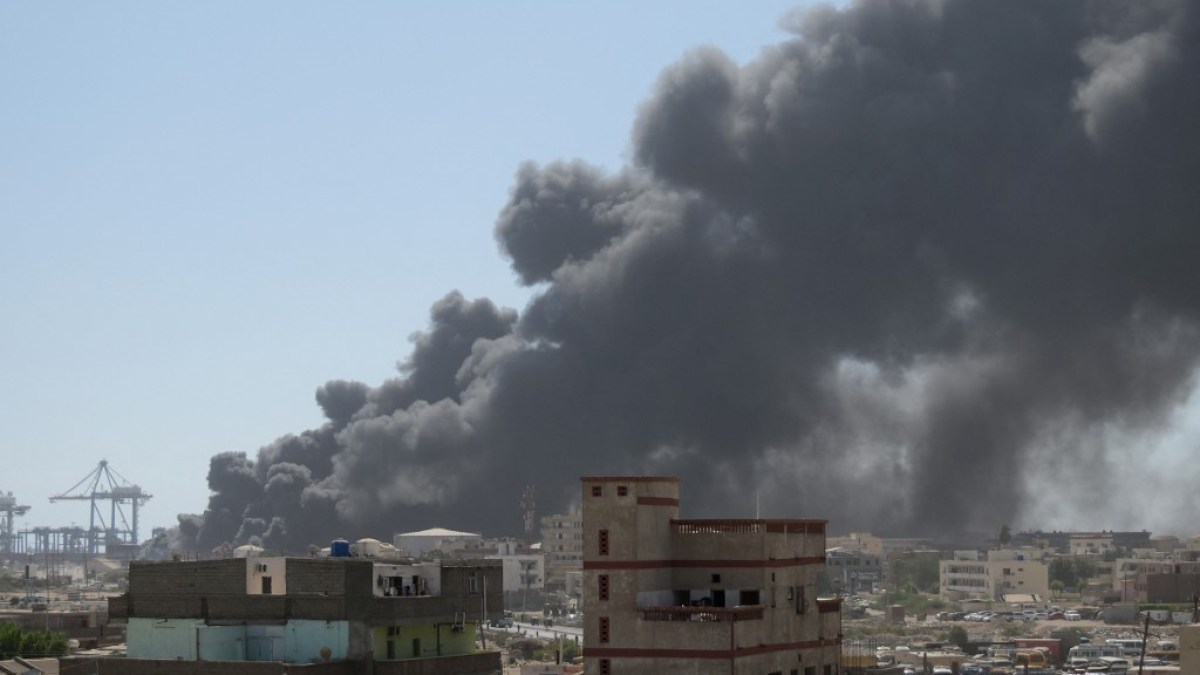
UAE says it “strongly rejects” accusations of arming Sudan’s paramilitary forces.
The United Arab Emirates (UAE) has denied supplying Chinese-made weapons to the paramilitary Rapid Support Forces (RSF), which is locked in a brutal conflict with Sudan’s military government.
Salem Aljaberi, the UAE’s assistant minister for security and military affairs, said on social media on Friday that the allegations, contained in an Amnesty International report released the previous day, are “baseless” and “lack substantiated evidence”.
Abu Dhabi has long rejected accusations – stemming from sources including the United Nations, United States, and NGOs – that it is arming the RSF.
“The UAE strongly rejects the suggestion that it is supplying weaponry to any party involved in the ongoing conflict in Sudan,” Aljaberi said in a statement shared by the Ministry of Foreign Affairs on X.
Statement by the #UAE Assistant Minister for Security and Military Affairs, HE Salem Aljaberi:
“The United Arab Emirates is aware of a misleading report published by a non-governmental organisation regarding allegations surrounding the presence of AH-4 howitzer systems in Sudan.…
— Afra Al Hameli (@AfraMalHameli) May 8, 2025
Amnesty said on Thursday that it had verified footage showing RSF fighters using Chinese GB50A guided bombs and 155mm AH-4 howitzers during attacks in Khartoum and Darfur.
According to the rights group, the UAE was the only known buyer of the howitzers from China, citing data from the Stockholm International Peace Research Institute.
Aljaberi dismissed the conclusion, saying the weapon system “has been available on the international market for nearly a decade” and was not exclusive to the UAE. He described the report as “misleading”.
New drones attacks on Port Sudan
Suffering a series of battlefield setbacks in recent weeks, the RSF has intensified its long-range drone attacks on areas controlled by the army.
The eastern city of Port Sudan has been a particular target and was hit for a sixth consecutive day on Friday. An army official, speaking to the AFP news agency anonymously, said air defences intercepted “enemy drones”.
Witnesses reported attacks damaging vital infrastructure, including the country’s only operational international airport, the largest fuel storage facility, and the main power station.
Port Sudan serves as the country’s principal aid hub. The war in Sudan has killed tens of thousands and displaced more than 13 million, creating the world’s worst humanitarian crisis, according to the UN.
UN Secretary-General Antonio Guterres warned the attacks “threaten to increase humanitarian needs and further complicate aid operations in the country”, according to his spokesperson.

Sudan’s Defence Minister Yassin Ibrahim on Tuesday accused the UAE of violating the country’s sovereignty by backing the RSF, and the military government announced it would cut diplomatic relations.
In response, Abu Dhabi denied supplying weapons and rejected the legitimacy of Sudan’s internationally recognised government.
Earlier this week, the International Court of Justice threw out Sudan’s lawsuit accusing the UAE of involvement in genocide, saying it does not have jurisdiction over the issues due to the Middle Eastern country’s exemption from Article 9 of the Genocide Convention.
UAE official Reem Ketait welcomed the ruling, calling it “clear and decisive”.
Middle East
Documentary sheds light on Biden’s reactions to Shireen Abu Akleh’s killing | Occupied West Bank News
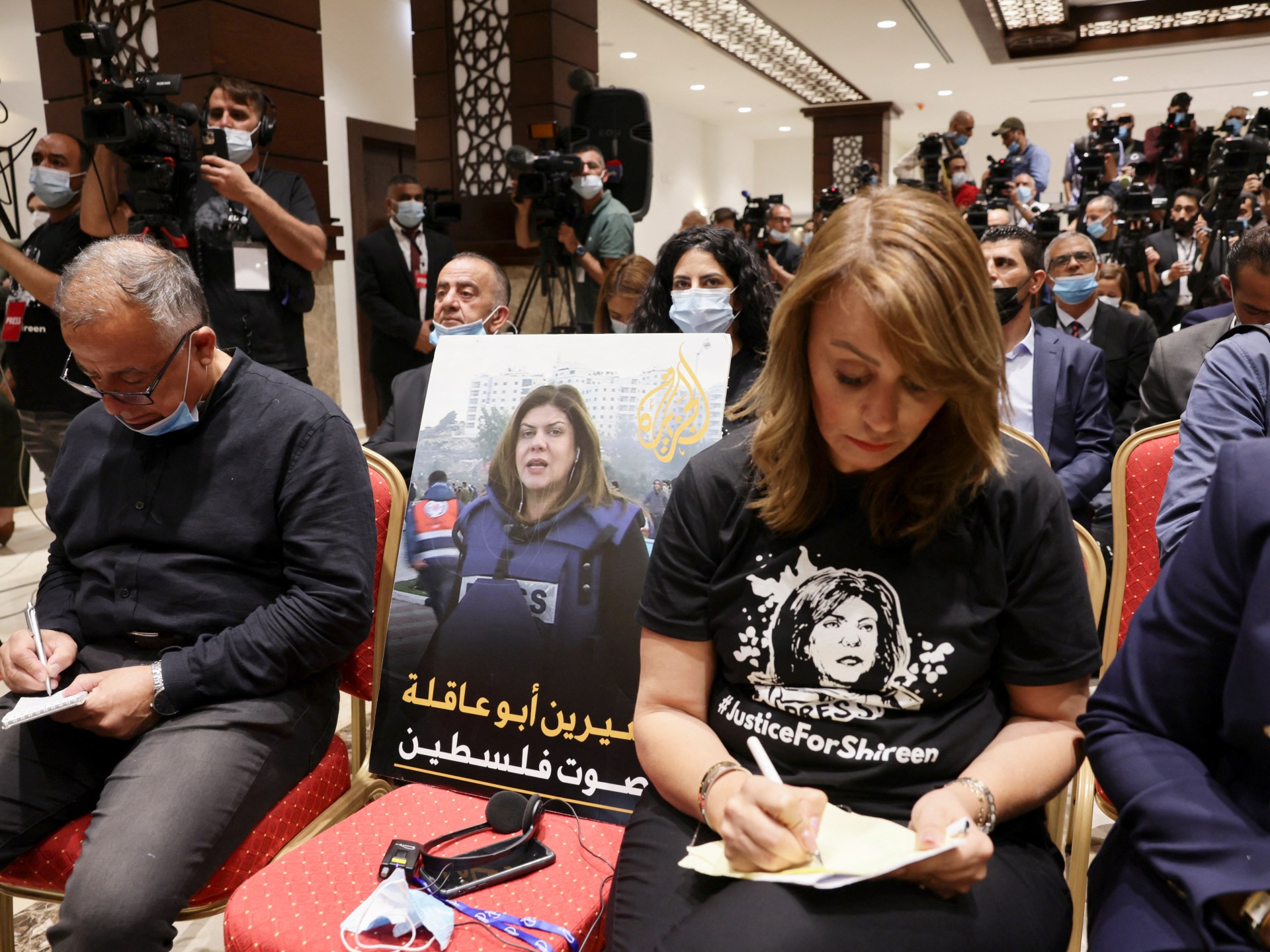
A documentary film has shed new light on how the administration of United States President Joe Biden responded to the killing of Al Jazeera journalist Shireen Abu Akleh, suggesting Washington had evidence indicating her shooting death was likely intentional.
An Israeli sniper fatally shot Abu Akleh nearly three years ago while she reported from the Jenin refugee camp in the Israeli-occupied West Bank on May 11, 2022.
The new film — a 40-minute investigative documentary from the Washington, DC-based media company Zeteo — was released on Thursday just ahead of the anniversary of her death.
Under the title Who Killed Shireen?, the documentary explores not only who pulled the trigger but why justice has been so elusive in Abu Akleh’s case. It also offers the clearest picture yet of the Biden administration’s political manoeuvring as public pressure mounted for accountability.
Abu Akleh was a US citizen, and during her final reporting assignment, she wore both a helmet and a blue vest clearly labelled with the word “press” to indicate her status as a journalist.
In the aftermath of her killing, the Biden administration faced pressure to investigate the circumstances of her death and whether the shooting was intentional.
But while the administration initially called for an “independent, credible investigation”, it shifted its stance as the months progressed. It walked back calls for the killer to be “prosecuted” and eventually described the shooting as “the result of tragic circumstances”.
It also eased its scrutiny of the Israeli military, calling for accountability only in the form of a review of its “rules of engagement”.
The documentary Who Killed Shireen? features interviews from former Washington insiders about why the Biden administration made such a pivot. Its most damaging testimony comes from an anonymous official, who spoke with his face and voice obscured.
In the film, the official claims the evidence available to the Biden administration indicated that Abu Akleh’s death “was an intentional killing”. He said that assessment was based on the “visual capabilities of that day” and the distance between the Israeli snipers and the journalists who were shot.
Another journalist, Ali al-Samoudi, was also wounded at the same time as Abu Akleh, though he survived his gunshot.
“Whether or not they knew it was her [Abu Akleh] or not can very well be debated, but they would have absolutely known it was a media person or a noncombatant at a minimum that [the Israeli soldier] shot and killed,” the anonymous Biden official said.
He added that it was his “belief” that the shooter would have been able to see Abu Akleh’s blue “press” jacket.
The official acknowledged the shift in the Biden administration’s position, from viewing the shooting as “an intentional killing” to describing it as “a tragic accident”. He linked that about-face to the historically close ties the US has shared with Israel.
“Ultimately, I think what it came down to was different pressure within the administration to not try to anger the government of Israel too much, by trying to force their hand at saying they intentionally killed a US citizen,” the official said.
Another former US official, Andrew Miller, also spoke to filmmakers as part of the documentary. Miller served as the deputy secretary of state for Israeli-Palestinian Affairs from 2022 to 2024, and he indicated that the Biden administration had not been forthcoming about the stonewalling it faced from the Israeli government.
He said the government of then-Israeli Prime Minister Naftali Bennett refused to allow the US access to the soldier who fired the fatal shot, even for “informal” questioning.
Miller also cast doubt on Israeli claims that Abu Akleh was shot during a crossfire with Palestinian fighters. He explained that the Biden administration had information from the start that contradicted those claims.
“The fact that the official Israeli position remains that this was a case of crossfire … [that] the entire episode was a mistake — as opposed to potentially a mistake in identification or the deliberate targeting of this individual — points to, I think, a broader policy of seeking to manage the narrative,” Miller said.
The Biden administration had never publicly contradicted Israel’s assessment. Instead, when the Israeli military released its final report on the killing in September 2022, it said it “welcomed” the assessment.
That report asserted that Abu Akleh was “accidentally hit” by an Israeli bullet “during an exchange of fire in which life-risking, widespread and indiscriminate shots were fired toward” Israeli soldiers.
To date, the US government has never declassified a State Department report on the killing or confirmed media reports that the Department of Justice was conducting a separate probe.
Rights groups, press freedom organisations, and lawmakers have long called the Biden administration’s response inadequate, appealing for greater transparency and for the US to withhold aid to the military unit responsible.
Advocates said the latest revelations underscore a continued cycle of impunity.
“The US government has acted as an accomplice to Israeli war crimes, not only against Palestinians but Americans, too, trumping loyalty to its own laws and citizens,” said Raed Jarrar, advocacy director at the human rights organisation Democracy for the Arab World Now (DAWN), in a statement responding to the documentary.
Middle East
Key takeaways: Documentary names alleged killer of Al Jazeera’s Abu Akleh | Crime News
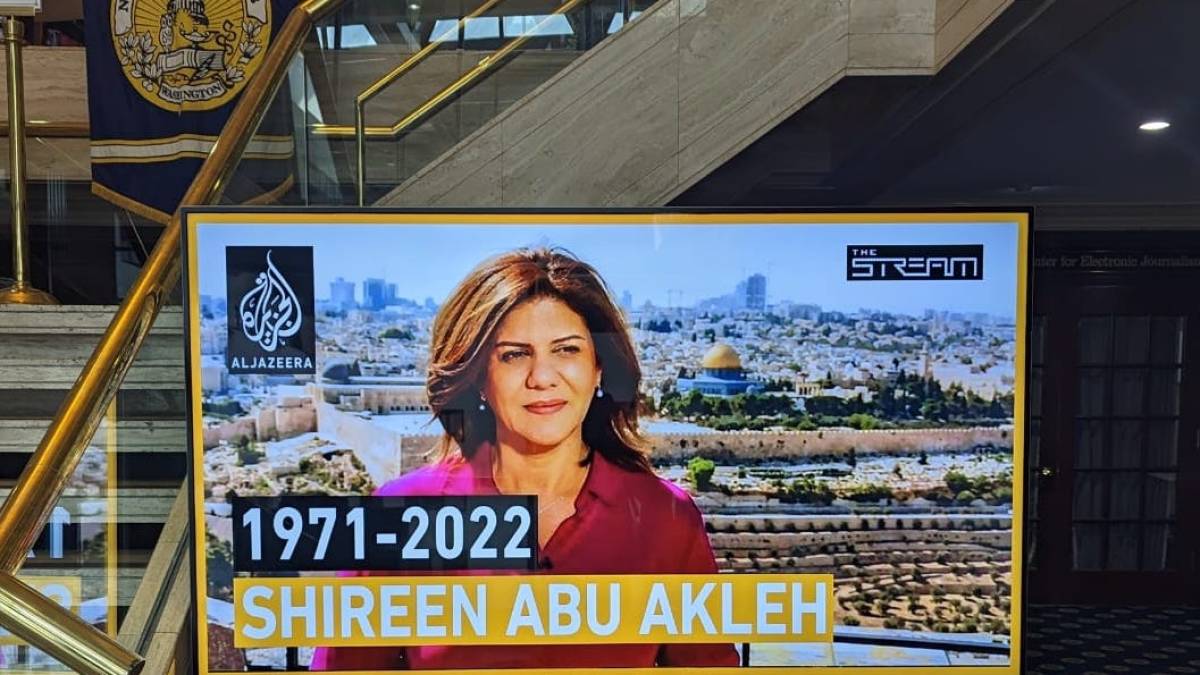
A new documentary claiming to have uncovered the name of the Israeli soldier responsible for shooting Al Jazeera correspondent Shireen Abu Akleh has been released online.
Abu Akleh, a Palestinian American who had been with Al Jazeera since 1997, was killed while reporting from Jenin in the occupied West Bank in May 2022.
Shortly after her death, Israeli officials and media suggested she had been killed by Palestinian gunfire.
However, subsequent reports from human rights organisations and news agencies showed that the Palestinian fighters initially accused by Israel were some distance from Abu Akleh’s killing and, in September, Israel conceded there was a “high probability” its forces had “accidentally” killed the correspondent.
Contributors to the documentary, Who Killed Shireen? released on Thursday by Zeteo, suggested that Abu Akleh’s killing has helped further embolden a sense of impunity among Israeli soldiers, which has since contributed to the killing of more than 200 journalists by the Israeli military and settlers in the West Bank.
Here are four of the key takeaways from the investigation:
Biden administration knew that Israel was responsible for Abu Akleh’s killing
According to numerous testimonies featured in the film, officials within the Biden administration either knew or suspected that Abu Akleh had been shot by an Israeli soldier, but continued to support Israeli claims that she had been killed by Palestinians.
The filmmakers also claim that US officials had been informed by an unnamed Israeli general responsible for the West Bank within hours of Abu Akleh’s killing that one of his soldiers had likely shot her.

Despite this, US officials continued to support public Israeli accounts of Abu Akleh’s killing that attempted to shift the blame, and then, when Israel publicly admitted the likely culpability of one of its soldiers, that the killing was unintentional.
US officials did not publicly dispute that narrative, and instead said they were unable to determine if a crime had been committed without access to the shooter, which Israel refused to allow.
US refused to take the matter further
Speaking to reporter Dion Nissenbaum, one anonymous staffer within the former administration of President Joe Biden said that officials declined to press the Israeli administration on killing one of their citizens for fear of “anger[ing] the Israeli government”.
This is despite officials having concluded, the same source said, that Abu Akleh’s killing had been an intentional act.
Interviewed in the documentary, Eyal Hulata, who was Israel’s national security adviser at the time of the killing, defended Israel’s decision not to release the suspected soldier for questioning by the United States, saying that Israel had a “very good and trustworthy investigative mechanism”.
Asked if he could ever remember the subject of the US journalist’s murder arising in discussions between President Biden and Naftali Bennett, who was Israeli prime minister at the time, Hulala replies, “This wasn’t a topic between the prime minister and the president.”

Further requests from the Biden administration that Israel change the rules of engagement that some felt had led to Abu Akleh’s death met, according to one interviewee, “the brush off”.
The failure of the Biden administration to hold Israel to account or bring about a change to its rules of engagement after Abu Akleh’s murder has, US Senator Chris Van Hollen told filmmakers, contributed towards “the deaths of … other Americans and other civilians”.
The soldier blamed for killing Abu Akleh is now dead
The film reports that, according to soldiers active that day, Abu Akleh was killed by Alon Scagio, a sniper with the Israeli military’s elite “Duvdevan” unit.
Speaking of his response to having killed the journalist, despite her identity as a member of the press being clear, a friend of Scagio says he didn’t “remember anything special” about Abu Akleh’s killing, “so it wasn’t, like, an issue. He wasn’t happy, like, ‘Hey, I killed a journalist,’ of course, but he wasn’t … eating himself from the inside.”
Investigations by the filmmakers show Scagio was moved out of the Duvdevan to a commander position in a different unit, distancing him from any investigation, as a result, the filmmakers guess, of having killed Abu Akleh.
Scagio was later killed in June 2024 by a roadside bomb in Jenin, the same West Bank city in which he is accused of killing Abu Akleh.
As a result of the fallout from Abu Akleh’s killing, Scagio’s friend claims the Duvdevan unit took to using her image for target practice.
US government support for Israel is unwavering
The killing of Abu Akleh came during what at the time was considered an intense phase of Israeli raids on the occupied West Bank. She was one of at least 145 Palestinians killed during the raids in 2022.
But since then, Israel has only ramped up its violence in both the West Bank and Gaza.
Israel has killed more than 52,000 Palestinians since it launched its war on Gaza in October 2023, decimating the territory and refusing the entry of food since March, starving the local population.
And in the West Bank, Israel has increased the severity of its attacks, using heavy weaponry and air strikes, and forcing Palestinians out of their homes. More than 900 Palestinians have been killed there.

Despite that, the US – both under former President Joe Biden and current President Donald Trump – has maintained its support of Israel, even as much of the rest of the world has criticised its actions.
At the United Nations, the US regularly votes alongside Israel, while the majority of member states seek to use the international body to pressure Israel to stop. And the US has threatened the International Criminal Court for seeking to arrest Israeli Prime Minister Benjamin Netanyahu for committing war crimes.
It is, therefore, perhaps no surprise that, even though Abu Akleh was a journalist doing her job when she was killed and an American citizen, the US has been willing to look the other way.
-
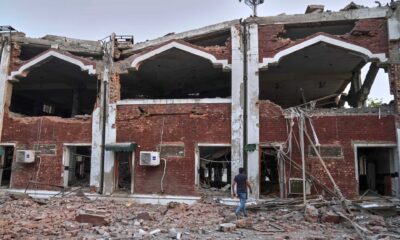
 Conflict Zones2 days ago
Conflict Zones2 days agoOperation Sindoor: What’s the significance of India’s Pakistan targets? | India-Pakistan Tensions News
-

 Middle East2 days ago
Middle East2 days agoWhat does the truce between the Houthis and the US mean for Yemenis? | Houthis
-
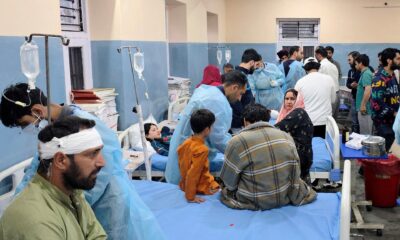
 Conflict Zones1 day ago
Conflict Zones1 day ago‘Don’t want war’: Kashmiri towns caught in deadly India-Pakistan crossfire | India-Pakistan Tensions
-
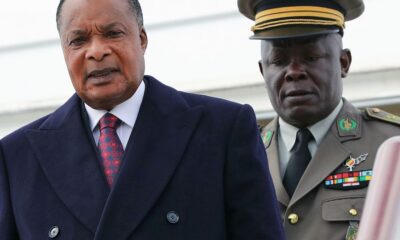
 Africa2 days ago
Africa2 days agoForeign leaders arrive in Russia for Victory Day parade
-
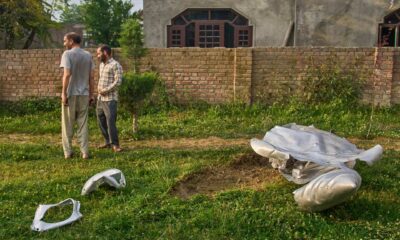
 Conflict Zones2 days ago
Conflict Zones2 days agoInformation war: Are India or Pakistan telling the truth about attacks? | India-Pakistan Tensions News
-
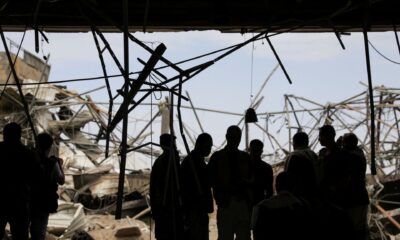
 Middle East1 day ago
Middle East1 day agoThe Take: What does Israel’s escalation with the Houthis mean for Yemen? | Houthis News
-

 Europe2 days ago
Europe2 days agoKylie Jenner and Timothée Chalamet make their red carpet debut in Rome
-

 Asia1 day ago
Asia1 day agoChina’s Xi hails ‘stable and resilient’ Russia ties as he shows solidarity with Putin in Moscow




